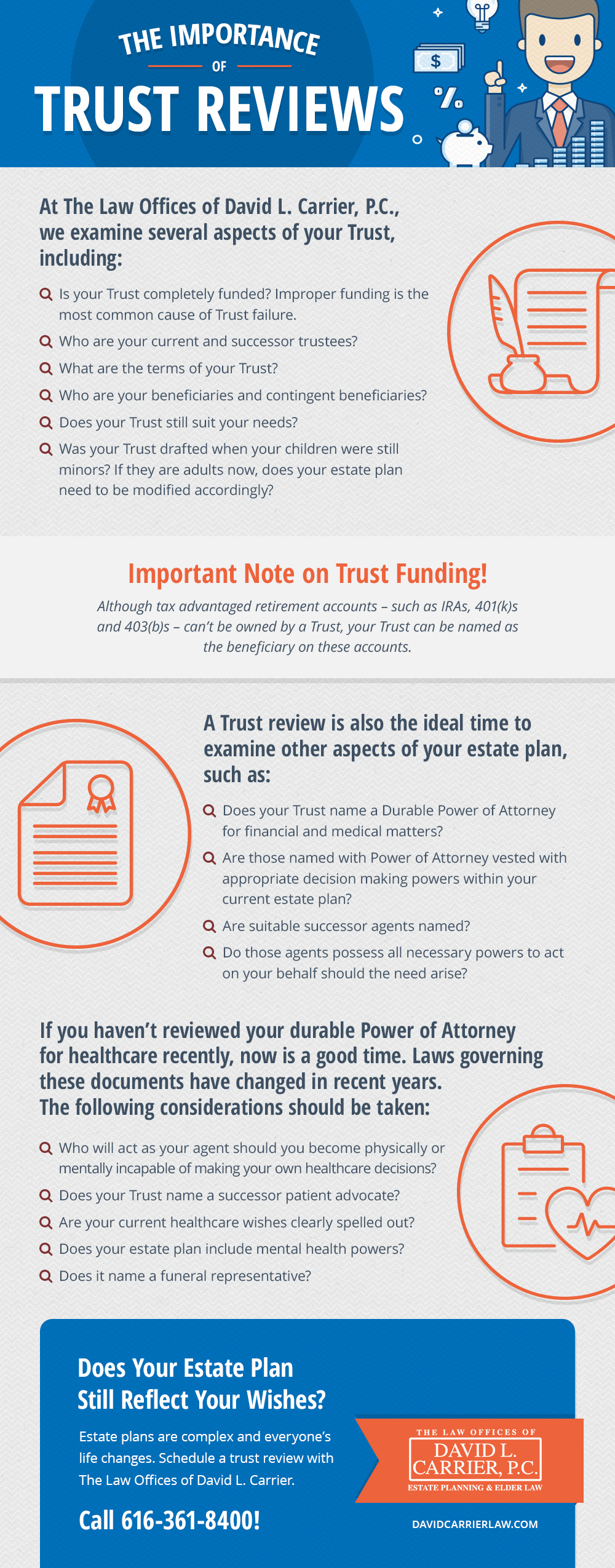Every estate, whether through a will or a trust, needs an executor or estate administrator to handle the execution of a will or the disbursement of a trust. The job is more complicated than it may initially sound, as there are a lot of loose ends that must be tied up after someone’s passing.
The Basic Responsibilities of an Executor
Essentially, the executor’s job is to resolve any outstanding issues and divvy up estate assets after a person’s passing. This generally entails:
- Safeguarding a person’s assets following their death but prior to dispersion to beneficiaries
- Ensuring all debts and taxes are paid on behalf of the deceased
- Transferring all remaining assets to the beneficiaries designated in estate planning documents
The Requirements
Although some people name a law firm, attorney or financial professional as the executor for their estate, that’s not a legal requirement. The executor can also be a family member or friend.
An executor does have a legal obligation to the deceased’s estate, what is commonly referred to as a fiduciary duty. This duty requires the executor to act honestly, impartially and diligently in their role as executor.
What the Job Entails
On a more detailed level, executors commonly have the following important duties to perform for the estate of their friend, family member or client:
Locating all assets – Ideally, assets should be easy to find and either be listed in a will or within a trust. Life isn’t always that clean and simple though, and it is the executor’s duty to locate all assets.
Distribute assets as prescribed by an estate plan – The same piece of property may be bequeathed to multiple beneficiaries in some scenarios. If you simply leave your home to your children, how exactly will that asset be divvied up? It may fall to the executor to sell real estate and other assets and then distribute the proceeds to the benefactors.
Pay debts and taxes – If an estate is going through probate, it is technically the executor’s responsibility to notify creditors of the debtor’s passing in addition to filing a final income tax return on the deceased’s behalf. If an estate is large enough to be subject to estate tax, it will be the executor’s duty to facilitate payment to the government.
Other Considerations
Depending on the complexity of the estate, there may be several ancillary duties involved within the previously stated duties. For example, an estate bank account may need to be established to house the proceeds of property liquidation. There may also be continuing upkeep and maintenance costs associated with properties in the deceased’s name, which will also fall to the executor to pay and maintain.
We accrue many things in a long life that the average person likely takes for granted. Credit cards must be closed, banks notified, government agencies informed, mail diverted, Medicare payments stopped and much more.
Choosing an Executor
Deciding who would be best for the role of executor for your estate can be difficult. Keep in mind some of the duties require filing court documents, potentially detailed financial calculations and a lot of box checking.
If you choose a family member or friend, make sure it’s someone who has the financial wherewithal to understand their role and at least a basic knowledge of legal and financial processes. You will preferably want to find someone in Michigan or the state in which you reside.
Also keep in mind that if you hire a third party, such as an attorney or financial professional, there will be a fee associated with that service. Most family members and friends tend to perform the role of executor for free.
Get Help with Your Estate Plan and Choosing an Executor
Whether you’re interested in setting up an estate plan or you have one but would like some assistance finding an executor, the Law Offices of David L. Carrier, P.C. can help. One of the services we commonly provide is assistance to family and friend executors. Even if the person you name as executor doesn’t have the time or knowledge to deal with the more intricate details of closing out your estate, we can help facilitate the process to make sure they get through it.
Contact us online or call us at (616) 361-8400 to schedule a consultation to learn more.



